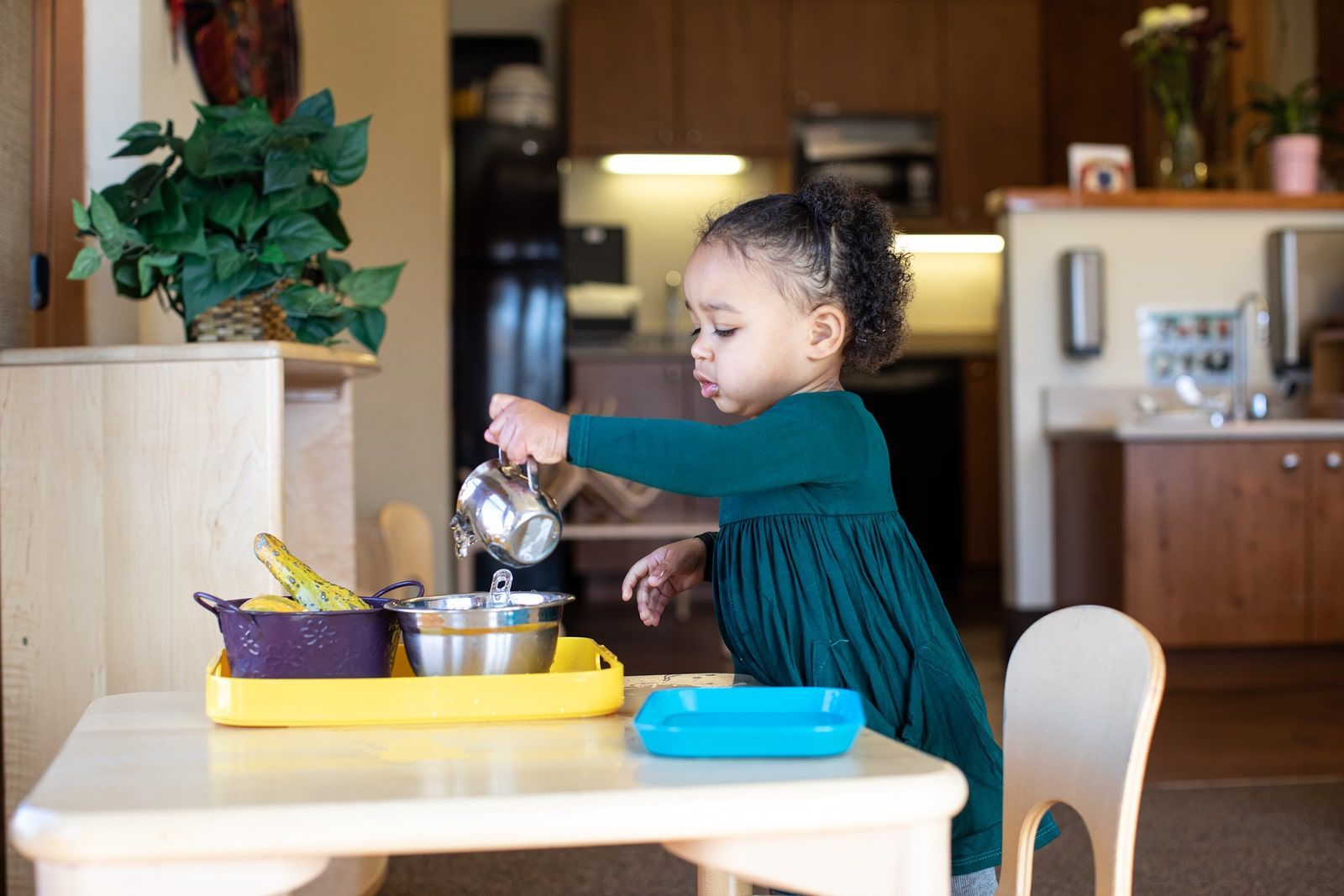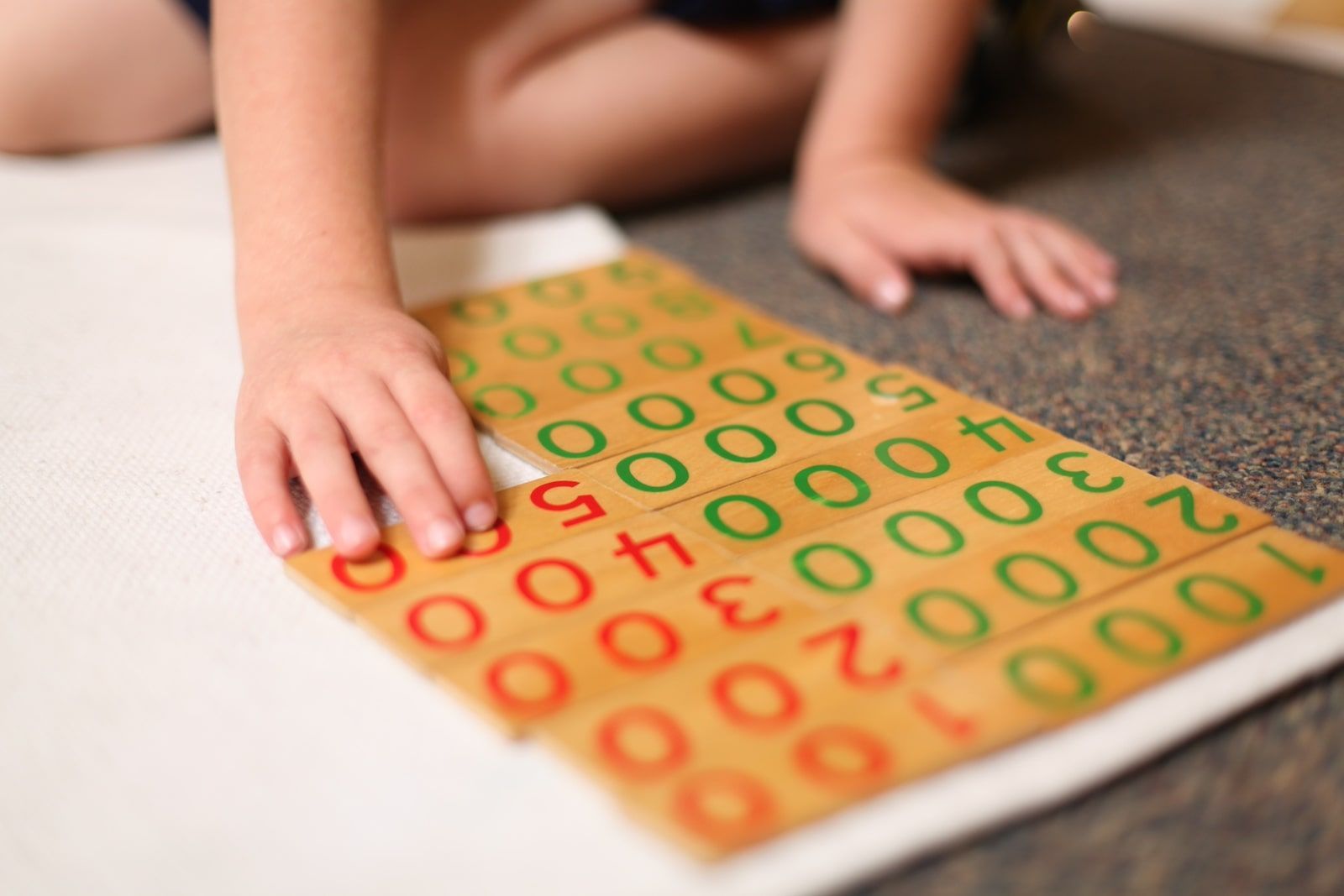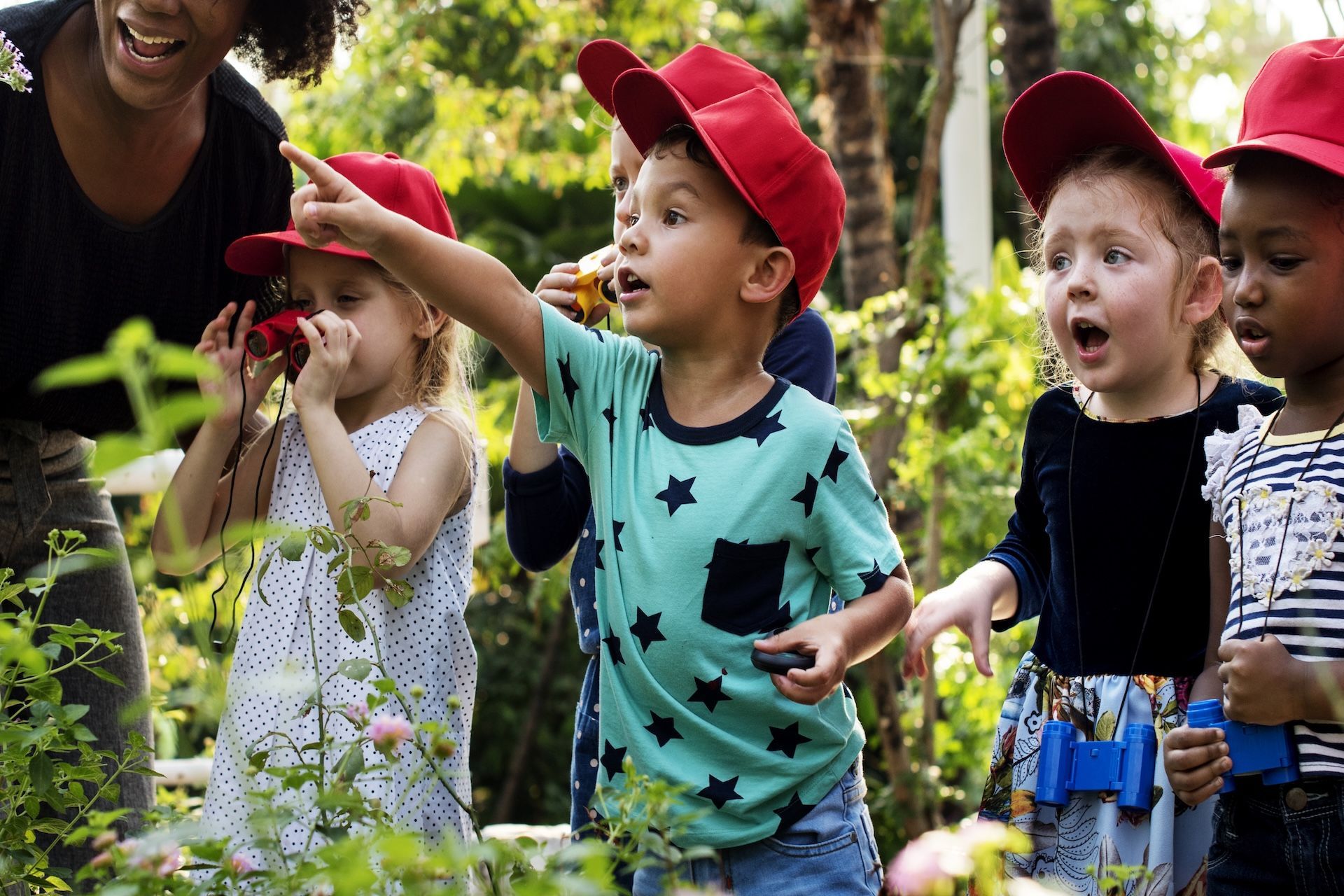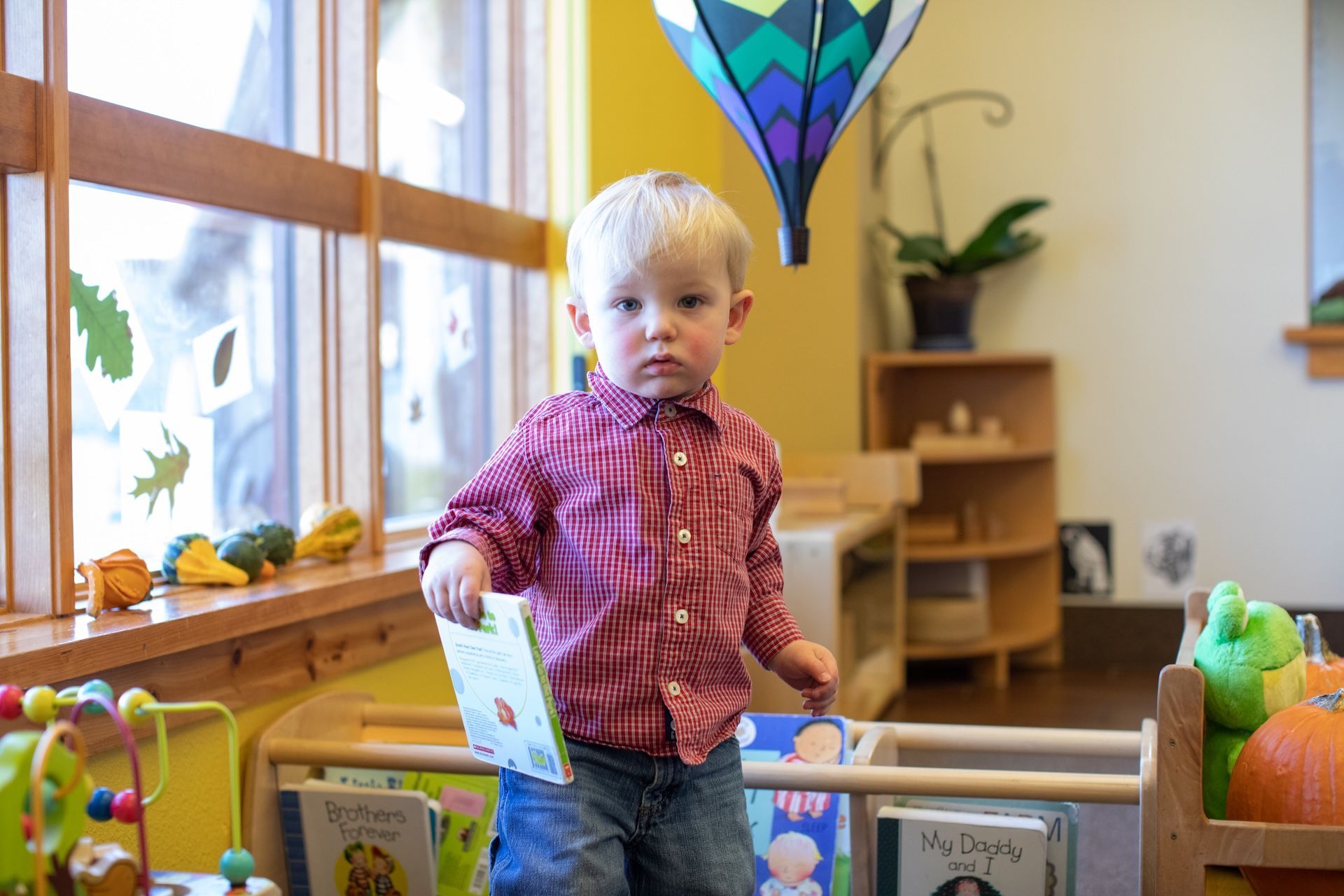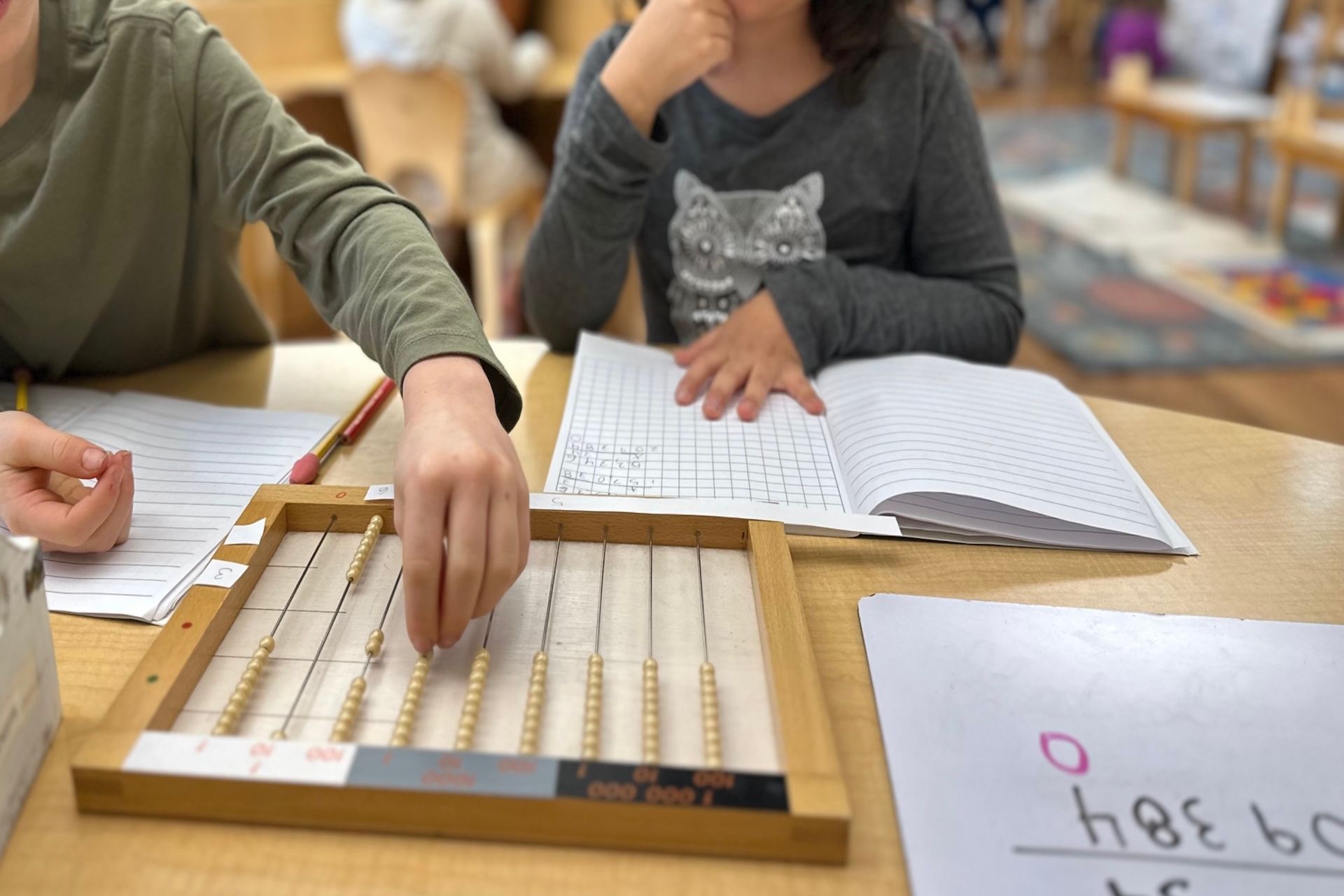Why Montessori【为什么选择蒙特梭利教育】
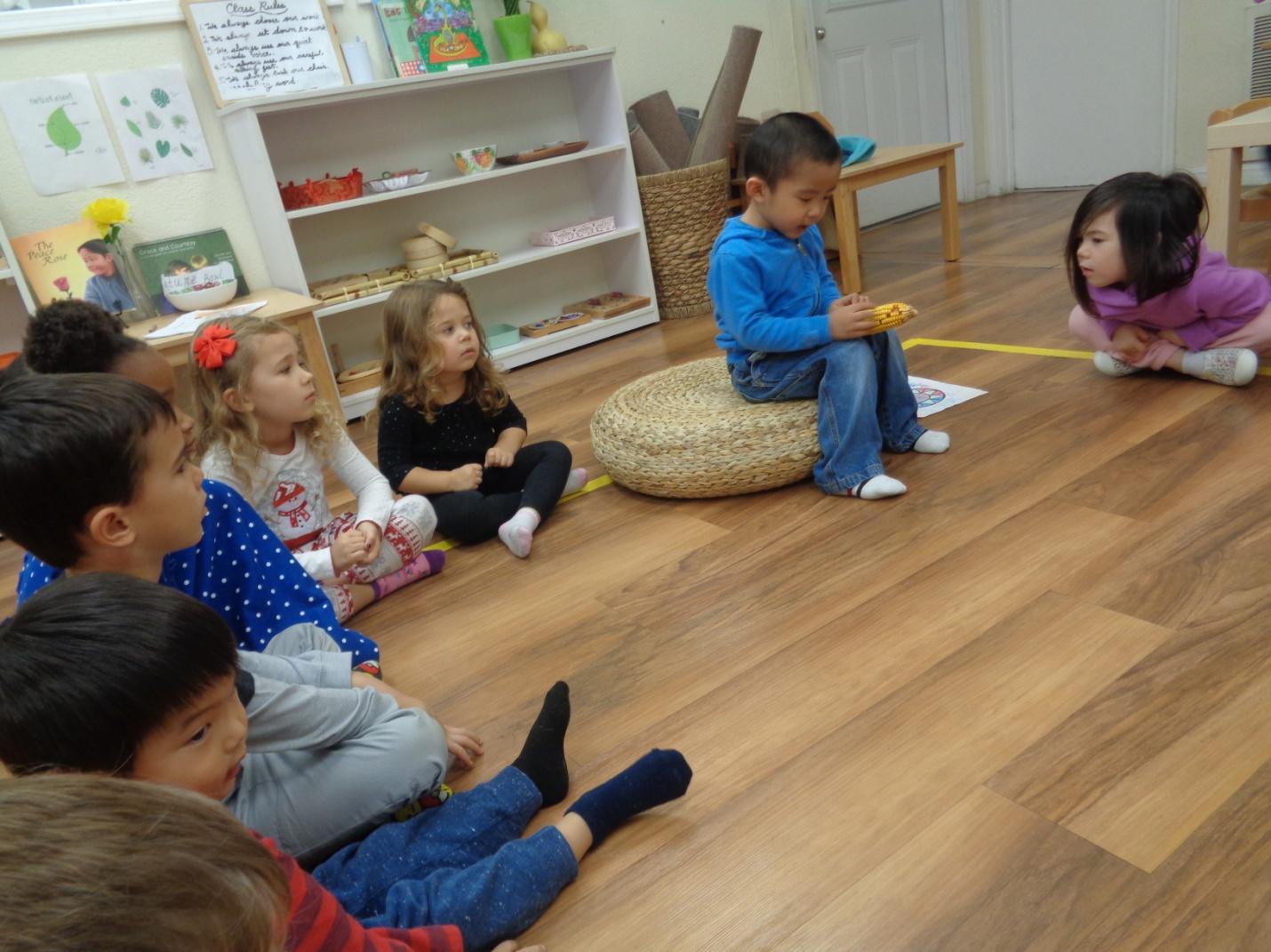
How does a parent prepare their child for an unpredictable future? Don’t we all just want to give them every possible advantage?
How do we define success in our children’s lives? Is it about being able to provide for oneself or finding joy in the work we do? Is it about contributing to our communities, or perhaps continuing to learn throughout our lives? Couldn’t it be a little bit of all of those things?
Goals
We think Montessori is one beautiful way to work toward all of these goals, and we are prepared to make some bold statements:
●Montessori gives children a strong understanding of basic math and language skills, starting earlier than most methods and using materials that support their development and methods that correlate with current research findings.
●Building a sense of independence and confidence is a major component of what we do. We know that children of all ages are fully capable of doing more for themselves than what they are often given credit. We have learned to sit back, observe, and assist only when necessary. This allows children to grow in incredible ways, amazing their parents (and frankly, us, too!).
●Respect for and connection to the Earth is built directly into our curriculum, especially in the elementary grades. We know that around age 6, children start to question where they fit into the bigger picture. We teach them about the universe, our solar system, the beauty of our planet, and the variety of life on it, just at a time when they are seeking those answers.
●Choice and freedom are important for all human beings. We give both of these to children because we believe that they are capable of knowing what they need and want, and the more practice they have, the better they will get at making decisions when we are not there to support them.
●We value teaching responsibility and time management skills. This goes hand in hand with focus and attentiveness. The ability to make choices about one’s learning must be balanced with accountability; as the children in our classrooms get older, they know there are certain expectations. For example, they may be able to choose the order of their work, but they know that they have to do grammar at some point during a specific time period, even if it’s not their favorite subject.
●Rather than drilling arbitrary facts into children and forcing them to memorize information that may not serve them in the future, we take a different approach. All children are exposed to a wide variety of basic scientific, geographical, and historical information, and are given extensive opportunities to more deeply explore the topics that they find fascinating.
Graduates of Montessori schools go on to be successful in other settings, whether they attend other private schools or local public schools. They tend to view the world a little more creatively than the rest of us, and their contributions are often felt throughout society. There are many notable public figures that credit their early Montessori education to the successes they experience later in life. To learn more about some of these people, take a look at this article.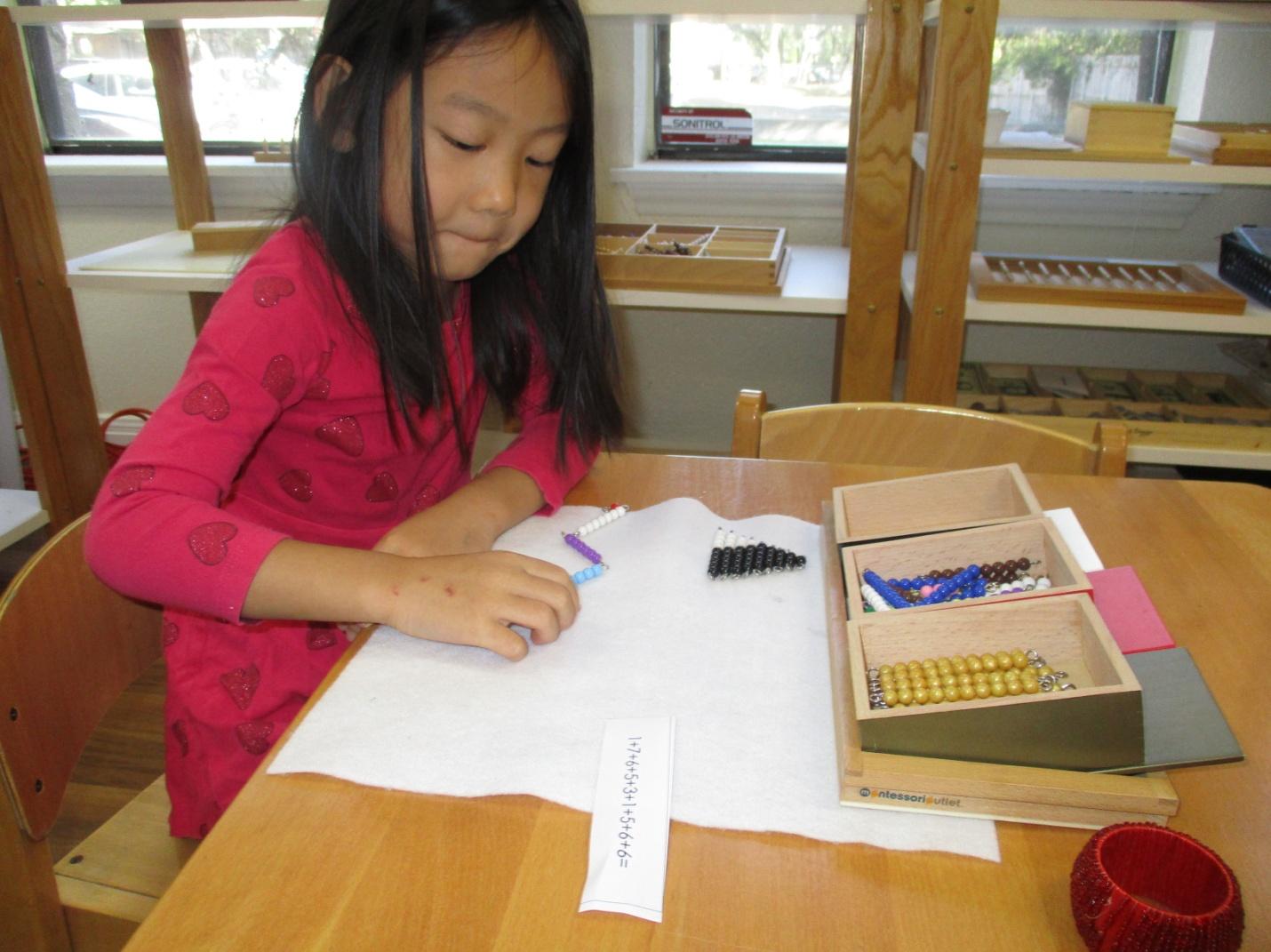
Research
Montessori-specific research is a fairly new field, but the initial results in recent years are fascinating.
One study
conducted in Hartford, Connecticut,
took a look at preschool students in a public Montessori magnet school. Federal magnet grants are awarded to public schools
who commit to special, high-quality educational programming (in this case,
Montessori) in an attempt to create a socio-economically diverse school
community within an urban setting. In
the study, two groups of preschool-aged children were observed over time: 70
children in the Montessori setting and 71 who were in other settings. While the children tested similarly at the
onset of the study, eventually the Montessori children outperformed the others
academically, as well as showing notable increases in their enjoyment of work,
social understanding, mastery orientation, and executive function. Sub-groups within the study showed some other
interesting findings to suggest that Montessori education might help improve
certain factors that typically hinder children’s success (such as income and
executive functioning).
Another study in public Montessori schools in Milwaukee concluded that a Montessori education has long-lasting positive benefits for children. The study determined that when Montessori-educated children eventually transitioned into more traditional educational settings, they experienced successful and positive transitions.
While there are other great studies out there, we will touch on just one more here. This study takes a look at the effects of a high-fidelity Montessori environment versus a low-fidelity Montessori or conventional classroom environment. Children who learned in a classic Montessori program, in which the guides adhered to traditional methods, made significantly higher gains during the school year than their counterparts in conventional classrooms or Montessori classrooms that were supplemented with other types of learning materials and methods.
Community
Montessori schools are also something unexpected: they provide a community for more than just the children. Parents, educators, students, and local community members gather together in support of common goals. They work together, socialize, and find ways to solve problems cooperatively. In our society today, many people have lost the sense of community that is so important to our well being; Montessori schools serve an important function of not just educating children, but giving like-minded adults a way to connect and form meaningful relationships.



